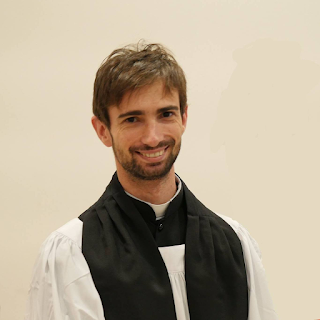Reading
Mark 6:7-13
7 Calling the Twelve to him, he began to send them out two by two and gave them authority over impure spirits.
8 These were his instructions: “Take nothing for the journey except a staff—no bread, no bag, no money in your belts. 9 Wear sandals but not an extra shirt. 10 Whenever you enter a house, stay there until you leave that town. 11 And if any place will not welcome you or listen to you, leave that place and shake the dust off your feet as a testimony against them.”
12 They went out and preached that people should repent. 13 They drove out many demons and anointed many sick people with oil and healed them.
Meditation
After being called by Jesus and having spent a time of preparation living in close contact with him, the disciples are now sent to preach and perform the deeds they have learned from this highly practical apprenticeship. In fact, Jesus did not give them scholastic teaching, but made them witnesses of his actions and now transfers his power to them (v. 7).
The twelve become a distinct group, invested with a prophetic mandate; for they will not teach in the synagogues as doctors of the law, but in the streets and in the houses. While in the Gospel of Matthew the disciples are sent to the children of Israel, with the prohibition of addressing the pagans and the Samaritans, in Mark this prohibition does not appear, attesting to a more universalist vision. Perhaps it is no coincidence that this Gospel passage precisely follows the manifestation of the unbelief of Jesus' fellow countrymen in Nazareth.
Unlike Matthew, a minimum of material equipment is permitted here. The Twelve are sent out two by two for mutual help and encouragement, as well as to meet the legal requirement for authentic testimony. The rod was commonly carried by travelers and also served as a defense against criminals or ferocious animals. The disciples will not have to carry with them neither bag, nor money, or food, completely depending on divine providence and testifying that they are simple men, who do not belong to this world. Tunics were the common robe and two were normally worn. Jesus asks the disciples to travel with the minimum necessary clothing.
No material advantage is foreseen for the disciples for their ministry and like Abraham, they will not know in advance where they will live. When they have found a house in which to be hosted, the disciples will have to be satisfied with what is offered to them, concentrating solely on the ministry of evangelization.
The shaking of the dust from the sandals (v. 11) is a symbolic gesture, which was performed by the Jews when they left a pagan territory so as not to contaminate the sacred soil of Israel. It, therefore, means, for the Twelve, to declare that pagan place, excluded from the community of true Israel, formed by those who welcome the announcement of Jesus.
The disciples do not preach a doctrine made up of curious speculations, they do not teach the wisdom of this world but simply call for conversion (v. 12).
Deliverance from demons reveals Christ's power over the supernatural world. The practice of anointing the sick by praying for their healing is also attested in the letter of James (Jm 5:14-15) and associates a visible sign with the action of grace.
The dispositions of Jesus to his disciples, constitute a warning for the church to cultivate simplicity and missionary commitment and call the apostles of all times to travel light, free from so many burdens that risk making it difficult to walk on the itinerary traced by the Spirit.
Prayer
Make us, Lord, faithful witnesses of your gospel and keep us from dangers along the way, so that we can hurry towards the goal you have established. Amen.
- Rev. Dr. Luca Vona

